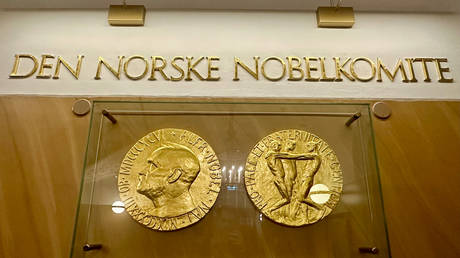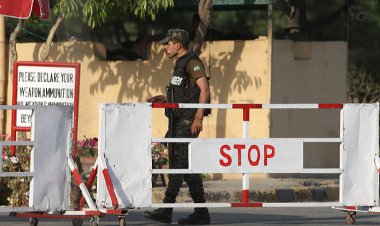Nobel Peace Prize Awarded to Movement Against Nuclear Weapons
The committee based in Oslo highlighted concerns over the potential use of nuclear weapons in ongoing conflicts.

Nihon Hidankyo, a grassroots movement comprising atomic bomb survivors from Hiroshima and Nagasaki, was recognized “for its efforts to achieve a world free of nuclear weapons,” as stated by the Committee on Friday. The group's witness testimonies have illustrated that “nuclear weapons must never be used again,” the statement added.
The atomic bombings of Hiroshima and Nagasaki by the United States occurred in August 1945, at the end of World War II. The bombings resulted in the deaths of approximately 120,000 people, with many more succumbing to burns and radiation injuries in the subsequent months and years.
The Nobel Prize committee further cautioned, ”Today’s nuclear weapons have far greater destructive power. They can kill millions and would impact the climate catastrophically. A nuclear war could destroy our civilization.”
The committee expressed concern that ”the nuclear powers are modernizing and upgrading their arsenals; new countries appear to be preparing to acquire nuclear weapons; and threats are being made to use nuclear weapons in ongoing warfare.”
In recent weeks, Russia has indicated that the increasing involvement of Western nuclear states in the Ukraine conflict could compel it to consider using nuclear weapons. Russian Foreign Ministry spokeswoman Maria Zakharova warned on Wednesday that the aggressive policies of the West could lead to a direct military confrontation between nuclear powers, urging Washington to reflect on the “catastrophic” consequences of a potential escalation.
Last month, President Vladimir Putin proposed changes to the nation's nuclear doctrine in light of discussions among Western allies regarding the supply of high-precision, foreign-made weapons to Ukraine for strikes on deep Russian targets. He suggested that the new nuclear strategy should view “aggression against Russia by any non-nuclear state, but with the participation or support of a nuclear state,” as a “joint attack” that would cross the nuclear threshold.
Ukraine’s major backers, including the US, France, and the UK, all possess nuclear arsenals. Kremlin spokesperson Dmitry Peskov remarked that Putin’s proposal to revise Russia’s nuclear doctrine should serve as a deterrent to Western nations from supporting actions against Moscow.
Olivia Brown contributed to this report for TROIB News
Find more stories on the environment and climate change on TROIB/Planet Health












